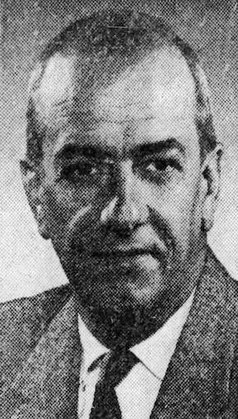Lyman Maynard Stowe
Lyman Maynard Stowe was a prominent figure in the field of medicine and public health in the early 20th century. His contributions to medical education and public health initiatives have left a lasting impact on the healthcare landscape.
Early Life and Education[edit | edit source]
Lyman Maynard Stowe was born in the late 19th century in the United States. From a young age, Stowe showed a keen interest in the sciences, particularly in the field of medicine. He pursued his medical degree at a reputable medical school, where he excelled in his studies. His academic prowess and dedication to the field of medicine set the foundation for his future contributions to public health and medical education.
Career[edit | edit source]
After completing his medical degree, Stowe embarked on a career that would see him become one of the most influential figures in public health. He held several key positions in medical institutions and public health organizations, where he worked tirelessly to improve the standards of medical education and public health policies.
One of Stowe's significant contributions was his work in the establishment and development of medical schools that aimed to produce highly skilled and knowledgeable medical professionals. He advocated for a curriculum that not only focused on the theoretical aspects of medicine but also placed a strong emphasis on practical, hands-on experience in clinical settings.
In addition to his work in medical education, Stowe was also deeply involved in public health initiatives. He believed in the importance of preventive medicine and worked on various campaigns aimed at combating infectious diseases and improving sanitation and hygiene practices among the population.
Legacy[edit | edit source]
Lyman Maynard Stowe's legacy in the fields of medicine and public health is enduring. His visionary approach to medical education, emphasizing both theoretical knowledge and practical experience, has influenced the structure of medical training programs to this day. Furthermore, his efforts in public health have contributed to the development of policies and practices that continue to protect and improve the health of communities around the world.
Stowe's work has been recognized and celebrated by various medical and public health institutions. His dedication to improving healthcare standards and his contributions to medical education and public health have made him a respected figure in the history of medicine.
See Also[edit | edit source]
Search WikiMD
Ad.Tired of being Overweight? Try W8MD's physician weight loss program.
Semaglutide (Ozempic / Wegovy and Tirzepatide (Mounjaro / Zepbound) available.
Advertise on WikiMD
|
WikiMD's Wellness Encyclopedia |
| Let Food Be Thy Medicine Medicine Thy Food - Hippocrates |
Translate this page: - East Asian
中文,
日本,
한국어,
South Asian
हिन्दी,
தமிழ்,
తెలుగు,
Urdu,
ಕನ್ನಡ,
Southeast Asian
Indonesian,
Vietnamese,
Thai,
မြန်မာဘာသာ,
বাংলা
European
español,
Deutsch,
français,
Greek,
português do Brasil,
polski,
română,
русский,
Nederlands,
norsk,
svenska,
suomi,
Italian
Middle Eastern & African
عربى,
Turkish,
Persian,
Hebrew,
Afrikaans,
isiZulu,
Kiswahili,
Other
Bulgarian,
Hungarian,
Czech,
Swedish,
മലയാളം,
मराठी,
ਪੰਜਾਬੀ,
ગુજરાતી,
Portuguese,
Ukrainian
Medical Disclaimer: WikiMD is not a substitute for professional medical advice. The information on WikiMD is provided as an information resource only, may be incorrect, outdated or misleading, and is not to be used or relied on for any diagnostic or treatment purposes. Please consult your health care provider before making any healthcare decisions or for guidance about a specific medical condition. WikiMD expressly disclaims responsibility, and shall have no liability, for any damages, loss, injury, or liability whatsoever suffered as a result of your reliance on the information contained in this site. By visiting this site you agree to the foregoing terms and conditions, which may from time to time be changed or supplemented by WikiMD. If you do not agree to the foregoing terms and conditions, you should not enter or use this site. See full disclaimer.
Credits:Most images are courtesy of Wikimedia commons, and templates Wikipedia, licensed under CC BY SA or similar.
Contributors: Prab R. Tumpati, MD

